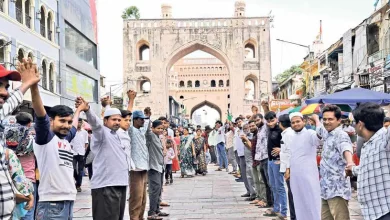Hyderabad: OUCE to revamp BE, ME curriculum

Hyderabad: Students of University College of Engineering, Osmania University, will have 30 per cent to 40 per cent classes of their course curriculum dealt with by experts from industry and R&D organisations and college alumni. Towards this, the university college is planning to revamp its entire syllabus for the master and bachelor engineering courses.
To start with, the autonomous college will be overhauling its curriculum for the master degree programmes which will focus more on outcome based learning, and skill-based besides making it industry relevant. In every semester from the next academic year, one course will be taught by the experts from industry and R&D organisations and alumni. The college which has a rich alumni base working in reputed organizations has already extended its support. The classes will be conducted either online, offline or blended mode.
“We are planning to re-design the course curriculum of the bachelors and master degree engineering programmes for the next academic year. One course in each semester and electives will be taught by experts from industry, R&D organisations and alumni. This is being done to ensure that students are provided in-depth knowledge and advanced skills in the relevant subject thereby increasing their employability quotient. The focus is also on churning out entrepreneurs,” Osmania University College of Engineering Principal, Dr. Sriram Venkatesh told Telangana today.
Part- Time:
This apart, the college administration has decided to provide an opportunity to master degree dropouts to complete their course through part-time. This move comes as the dropout rate among the master degree students was at 40 per cent as they join jobs in various state and central governments and other public sector undertakings.
From this year, such dropouts without waiting for commencement of the semester can enroll for part-time programmes and complete their pending course. However, they must produce a no objection certificate from their employer and reside within the Greater Hyderabad Municipality Corporation limits.
In another student-centric approach, the college is drawing plans to implement relative grading instead of the present absolute grading system. In the relative grading system, grades of students are determined by comparing them against their peers of the class, while absolute grades are given on the basis of students’ performance.







